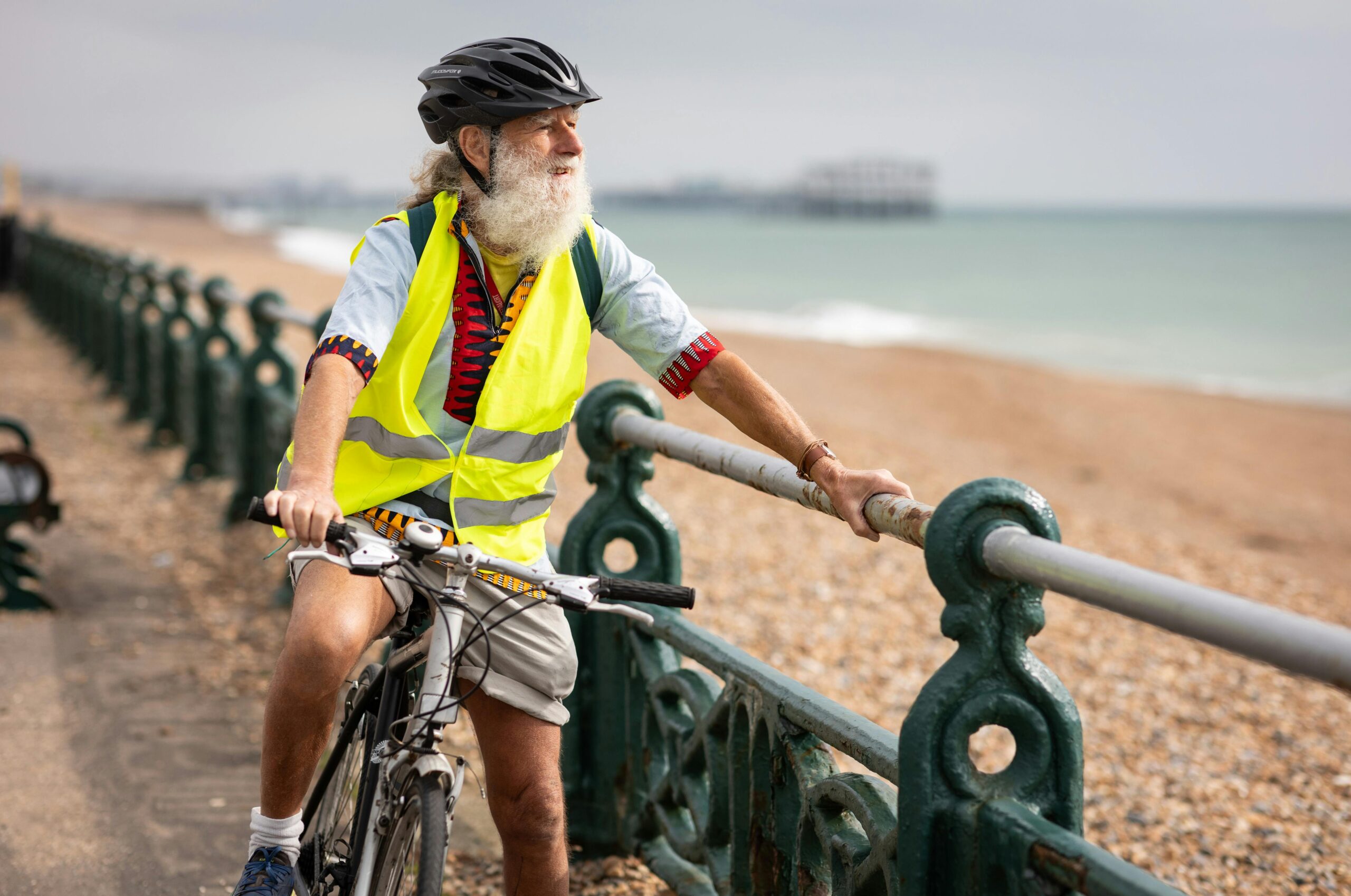As we age, keeping our minds sharp is more important than ever. Regular exercise is a key way to help our brains stay healthy. This guide explores how exercise boosts mental clarity and overall health in older adults.
It covers the science behind exercise and brain health. We’ll look at how different exercises can improve mental sharpness. Seniors can use this knowledge to stay mentally sharp and live independently.
Key Takeaways
- Regular exercise is crucial in maintaining and improving cognitive health in seniors.
- Physical activity promotes neural plasticity, the brain’s ability to adapt and change over time.
- Specific brain regions, such as the hippocampus and prefrontal cortex, show significant benefits from regular exercise.
- Different exercises, including aerobic activities, strength training, and balance exercises, can all contribute to enhanced mental sharpness in the elderly.
- Developing an age-appropriate exercise routine tailored to individual needs and preferences is essential for maximizing seniors’ cognitive benefits of physical activity.
Understanding the Connection Between Physical Activity and Brain Health in Seniors
For seniors, staying active is key for both body and mind. It helps keep the brain sharp and prevents mental decline, thanks to the brain’s ability to change and adapt, especially with exercise.
The Science Behind Exercise and Neural Plasticity
Exercise boosts the brain by creating new pathways and strengthening old ones. This is called neural plasticity. It helps the brain stay sharp as we age. By being active, seniors can grow new brain cells and improve their brain’s functioning.
Age-Related Cognitive Changes and Exercise Benefits
As we age, our memory and thinking skills may slow down. However, research shows that staying active can slow this down. Exercise helps keep the mind sharp, improving memory and problem-solving skills.
Key Brain Areas Affected by Physical Activity
Exercise has a big impact on certain parts of the brain. The hippocampus, which is important for memory, and the prefrontal cortex, which is used for decision-making, benefit from activity. This helps keep these areas working well as we age.
| Brain Region | Cognitive Function | Impact of Exercise |
| Hippocampus | Memory formation, spatial awareness | Preserves function and volume |
| Prefrontal Cortex | Executive functions (decision-making, planning) | Improves cognitive flexibility and problem-solving |
How Regular Exercise Improves Senior Cognitive Health
Exercise is essential for maintaining our bodies and minds as we age. It enhances concentration, develops memory, and protects the brain from aging. This phenomenon is credited to neuroplasticity.
Exercise does us good by stimulating blood flow and oxygen to the brain. This promotes new brain cell growth and improves connectivity. It’s called neurogenesis. It can also decrease inflammation in the brain and prevent cognitive impairment and diseases like Alzheimer’s and Parkinson’s.
As many studies have described, exercise has advantages for seniors. It enhances memory, focus, and executive function, which is crucial for maintaining independence and quality of life later in life. Exercise also reduces the risk of cognitive decline, so it may be able to postpone dementia and other neurodegenerative diseases.
Physical activity is one of the most powerful lifestyle modifications for enhancing brain health in older adults. Riding can help keep those edges sharp by stimulating neuroplasticity and reducing inflammation, which can delay age-related cognitive decline.
Varying your physical activity is ideal. These include aerobics, resistance training, and balance and coordination activities. Cognitive health in older adults — A brain and body approach to support overall health.
Types of Exercises That Boost Mental Sharpness in Elderly
Keeping active is key for seniors to stay mentally sharp. Different exercises help in this way. Aerobic, strength training and balance exercises have unique benefits for the brain and overall health.
Aerobic Activities for Brain Health
Regular aerobic exercise, like walking or swimming, boosts brain function in older adults. It increases blood flow to the brain. This brings oxygen and nutrients needed for brain health.
Aerobic exercise improves memory, processing speed, and mental sharpness. It helps seniors stay mentally sharp as they age.
Strength Training and Cognitive Function
Strength training is also good for the brain. It targets major muscle groups and improves planning and problem-solving skills. It also boosts memory and cognitive flexibility.
Strength training helps seniors stay mentally sharp. It empowers them to maintain their mental agility.
Balance and Coordination Exercises
As we get older, balance and coordination become more important. They affect both physical and mental health. Exercises like tai chi or yoga improve balance and prevent falls.
They also enhance spatial awareness, attention, and information processing, allowing seniors to stay independent and mentally agile.
| Exercise Type | Benefits for Mental Sharpness |
| Aerobic Activities | Improved executive function, memory, and processing speed |
| Strength Training | Enhanced executive function, memory, and cognitive flexibility |
| Balance and Coordination Exercises | Increased spatial awareness, attention, and information processing |
Various exercises can boost seniors’ mental sharpness, allowing them to enjoy an active and independent life in their golden years.
Creating an Age-Appropriate Exercise Routine for Mental Wellness
A customized exercise regimen is a fabulous means to improve cognitive health for seniors. So, make a schedule that accommodates your health, fitness, and activity preferences. This will sharpen your brain and improve your health.
One of the most important aspects of composing an exercise plan is choosing the right combination of exercises. Experts recommend moderate-intensity exercise for at least 150 minutes per week, including some combination of cardio, strength training, and balance exercises.
Finding ways around physical activity hurdles. To stay fit, seniors can experiment with various activities while keeping their needs in mind. It also helps to combine mental challenges with physical tasks. Dancing mixes movement with memory and coordination tasks.
FAQ
How can regular exercise improve cognitive health in seniors?
Exercise enhances cognitive capabilities in older individuals. It makes the brain more plastic and opens up new connections, which have been proven to enhance memory, focus, and processing time.
It helps seniors stay mentally sharp and prevents cognitive decline.
What types of exercises are most beneficial for senior brain health?
A few specific cardio exercises aid seniors’ brains. Aerobic exercises such as walking and swimming increase blood flow and growth of brain cells. Improved memory and executive function: Strength التدريب
Balance exercises keep the mind agile and prevent falls.
How often and for how long should seniors exercise to see cognitive benefits?
But just how much exercise is needed (or safe) for seniors? Specialists recommend at least 150 minutes of weekly cardiovascular exercise, and two to three sessions of strength and balance training should be added.
Being consistent and gradually increasing exercise is crucial for brain benefits.
Can exercise help prevent or delay the onset of age-related cognitive decline and dementia?
Sure, exercise helps to reduce the risk of cognitive decline and Alzheimer’s disease. It enhances brain plasticity, increases circulation, and minimizes inflammation. This sharpens the conscious part of the brain while slowing the onset of dementia.
How can seniors incorporate cognitive challenges into their exercise routine?
Brain Challenges: Seniors can incorporate these into their workouts. Walk different routes or do two tasks at once when you walk. Things like dancing or martial arts are also demanding for the brain.










